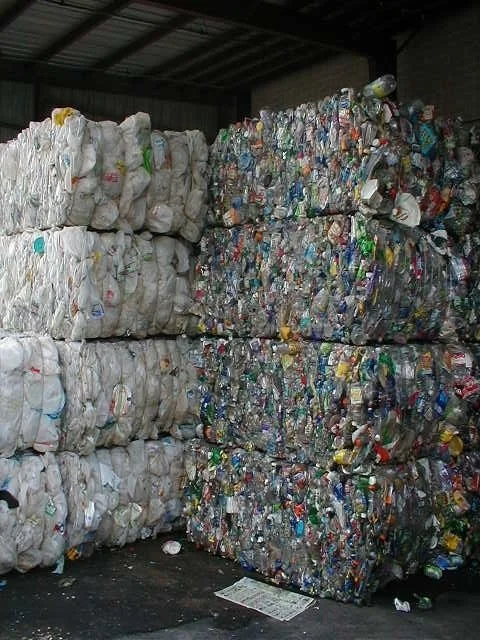Special Edition Spring 2022: Out of Sight, Out of Mind
The recycling industrial complex
Reduce, reuse, recycle. This catchy line has been a staple of the environmental movement since 1976, when Congress passed the Resource Conservation and Recovery Act. Recycling is touted as a nearly effortless step that everyone can take towards a greener future for us all. We reduce our consumption, reuse what we can, and recycle . . . well, in America, most anything that can fit in the bin. Americans are often referred to in the plastic repurposement industry as ‘wishful recyclers’— that is, many things are recycled solely out of the hope that they can be. This wishful recycling has begun to have real consequences, however — and the three “R”s may not be applicable in a sustainable future.
For many years, the standard in the American recycling industry has been for local governments or private recycling companies to collect plastic waste from the public and export it overseas. Recycling has been a helpful tool for the environmental movement, but it has also been helpful to the corporations that profit off of it.
These benefits are twofold. Recycling allows people to feel like they’re helping the environment and making a difference while simultaneously putting in very little effort. In addition, this well-meaning public consciousness provides free labor for recycling companies, who can trust in the public to supply them with used plastics. This free labor and supply do not go without rewards for the industry.
According to 2016 study by the Environmental Protection Agency, “ . . .the recycling and reuse industry consists of approximately 56,000 establishments that employ more than 1.1 million people, generate an annual payroll of nearly $37 billion, and gross over $236 billion in annual revenues.” But with this level of profit on the line, where is all the plastic going?
As mentioned, the vast majority of usable recycled materials is shipped overseas. The plastic waste that can’t be used is placed in landfills or burned. According to a 2018 NPR report, before 2018, China was the primary importer of American recyclables. The country boasts larger recycling facilities, and has the capability to feed the recycled plastics into the manufacturing sector. These capabilities were largely powered by private recycling companies, which found huge profits in being able to produce and sell the newly recycled raw materials.
However, as of 2018, the country implemented the “National Sword” policy which froze the process of importing most plastic waste. The Straits Times reported in 2018 that the National Sword banned import of 24 different kinds of solid wastes and set stricter limits on levels of impurities allowed in other recyclables. This policy sent deep aftershocks into the worldwide recycling industry.
While some private companies buy plastic waste to process into the small pellets usable in manufacturing, none could hope to make up for the high demand and prices of China, tanking the value of plastic waste. Additionally, China’s long-standing presence on the market has stunted technological innovation for the industry. There’s no incentive to find sustainable ways of locally processing recyclables when an industry giant stands ready to purchase them.
Furthermore, there’s significant pressure for recycling to be a largely “invisible” process. Many people prefer to view waste as out-of-sight, out-of-mind — which is significantly more difficult when the millions of tons of plastic waste can’t simply be whisked overseas.
With the newfound lack of options, huge amounts of waste are being deferred to other countries, such as Malaysia, which has experienced a boom in illegal recycling. Illegal recycling refers to recycling facilities that operate without permits or regulations. This can lead to devastating fallout for surrounding areas, as fumes from burning plastic can aggravate the respiratory system, cause rashes, nausea, or headaches and even damage the nervous system. While these illegal facilities have always existed, the suddenly increased supply of waste deferred from China has kicked many operations into high gear.
What is there to do? Many people already suffer from crushing environmental crisis fatigue, and this information simply adds to the burden. Recycling is supposed to be something simple that everyone can do to benefit the earth, but the processes may now be doing more harm than good.
However, it will always help us to focus more on what we can do than to give into the guilt.
While I know sustainability tips always seem preachy, here’s seven things St. Kate’s students can do to live more sustainably (that aren’t recycling).
Stop the problem at the source! By focusing more on the ‘reduce’ part of ‘reduce, reuse, recycle’, we can ensure that there’s less plastic waste in the first place. Be mindful about your consumption, and look for ways to reduce your intake!
Use the reusable plates and silverware at the dining hall whenever possible, or consider taking part in the ecoshell system!
Use a beeswax wrap in place of plastic boxes or wraps to keep your food fresh!
Carry purchases in a backpack or tote bag instead of plastic. (Gorgeous girls use tote bags!)
Buy used or unbound textbooks.
Thrift! Many Katies already love thrifting clothes, but it’s a great way to reduce fashion waste and find unique pieces.
Don’t fall for greenwashing! “Greenwashing” refers to corporations giving misleading impressions of how environmentally friendly a product is. Thinking back to point 1, it will always be better to use a reusable bottle instead of an ‘environmentally friendly’ single use.
Sustainability can often be presented as downer after downer, but if we want to make sustainability itself sustainable, we have to be able to find the joy in making our lives more environmentally friendly.






